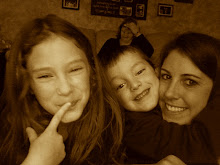

- Based upon observations and interactions with the St. Mary’s students, describe what you have learned about young children? Provide examples of activities you felt were appropriate. Why? Were there activities that were not appropriate? Why?
During the past 6 labs I have learned a lot about young children. The main thing that I have realized is in the area of instruction and directions. It has been really crucial to keep directions short and sweet, and to give instructions with simple cues, in order to minimize confusion within the class. With long directions students get really antsy and distracted, and most likely after the first minute or two they are not retaining any information you are saying. Another thing that I have learned in the 201 labs, was the way you present games is so vital to sparking the interest with the children. In the beginning labs, our class would just have a game, teach the rules and have the students play. This works but this is not a way to really get everyone’s attention and get all to participate. What our class has figured out is that you need to present to the students in a way were they are intrigued with the activity and excited to participate. For example I feel as if the best lab that my group did was the Super Hero Training Camp. Our group took a game like endless buckets and twisted it to a way we felt was fun and exciting. Sure enough we had all the kids participating, and performing the locomotor skills on hand, without them even realizing it.
- Based upon your interactions with St. Mary’s PRE K program, describe your experience. How was this different from working with the older age students? Did you enjoy working with younger age children? Why or Why not?
Working with the PRE K program was something I didn’t really expect going into this class, but I am thankful for the opportunity that we had to work with this group of youngsters. My very first week at St. Mary’s, my teaching group was thrown into the PRE K. Our main task with in the classroom was getting the students to talk and interact with us as much as possible. I noticed that it was great to be silly, and out going with them. Most likely if you sparked a conversation with them, and were acting silly, they would play and communicate back. I wish we had the chance to work with the PreK more in the gymnasium. It was hard to get a sense of their locomotor skills because their only time in the gymnasium was at the end of the lab, when all the other grade levels were in their, giving them limited space, a noisy, and chaotic environment. Working with the PRE K students was a difference experience then working with the older students because you really had to work on their fine motor skills, such as coloring, playing with legos, and doing various tasks with hand eye coordination.
- During your field experience, each of you worked with children in the cafeteria setting. Describe the fine motor activities you observed. Do you feel that working on fine motor activities is something we should work on in Physical Education.
Working down in the cafeteria we had a lot of different opportunities to observe various ages students work on fine motorskills. Activities we did down there included checkers, mancala, coloring, card games, legos and connect four. Although these activities themselves are not strenuous physical activities, I feel as if the fine motor skills carry over into the physical education setting. These are hand eye coordination activities, and the more control individuals have over this skill, the better they will be at certain tasks. However, I don’t feel as if fine motor skills is something that should be addressed in physical education because of time. I think there are more important things to be working on during the class period. I think fine motor skills are important, but this is something that can be practice with in the classroom.
- Reflecting on your growth as a future teacher, what have you learned from this experience that has given you insight as to your individual “teaching style”. Has your teaching style emerged based upon your experience and interaction at St. Mary’s. If yes, in what way. If not, how else might this occur?




No comments:
Post a Comment